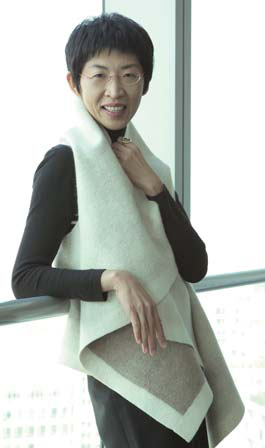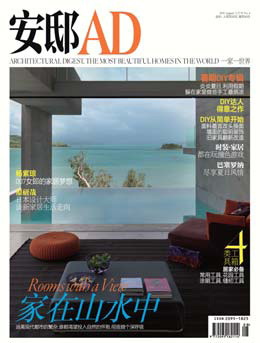Chinese market gives magazines a new home
Updated: 2011-11-04 08:55
By Yao Jing (China Daily)
|
|||||||||
|
Wang Xu, editorial director of AD China, whose magazine is launching iPhone and iPad editions. Provided to China Daily |
Helping people make their surroundings look prettier has become an attractive proposition for publishers
|
|
The venerable House & Garden was one of the first to go. About the same time Blueprint bit the dust, and the next to fall was Domino.
All has not been well with the interior design magazines market in the United States in recent years, and publishers, looking for new store shelves with which to decorate their titles, seem to have found them - in China.
Furniture Today, a global news source for the home decorating industry, is extending its presence with the launch of Jin Ri Jia Ju (Furniture Today China).
The new title, produced in conjunction with Oceania Media Ltd, made its debut in September last year with monthly circulation of 30,000, says Wang Hongqing, the editor-in chief of Jin Ri Jia Ju.
Architectural Digest, the 91-year-old Conde Nast magazine, published the first issue of An Di, or AD (Architectural Digest China) in April, and it is said to have 516,000 readers.
It is not only foreign-owned media companies that have been driving the surge in home-design publications in recent years.
Di Yi Jia Ju (I Home), a Chinese publication that started in 2009, has a monthly print run of 200,000, almost equal to established titles such as Residence, which has a monthly run of about 210,000.
"We are mainly targeting the country's growing wealthy people 25-45 years old," says Tang Li, editor-in-chief of Di Yi Jia Ju.
Tang says that China's home decorating industry is developing rapidly because of the real estate boom. People are becoming ever more ambitious in improving their living environment, too, as a result of higher living standards.
The number of those in the middle class in Beijing reached 5.4 million, accounting for 40 percent of the population, and the average monthly income for a middle-class individual is 5,920 yuan ($930, 680 euros), according to a report published by Social Sciences Academic Press and Beijing University of Technology in July.
"Although the magazine industry is facing a slowdown due to changing reading habits, it leaves a potential market for (magazines focusing on interior design and architecture) as people are becoming rich and interior design is more important for them," Tang says.
As interior design magazines fold in the US (the same has happened with publications such as Oprah Winfrey's O at Home and Martha Stewart's Blueprint), a new generation of interior design titles has taken off in Brazil, Russia and, most aggressively, in China, according to the Los Angeles Times.
"Local Chinese interior design and decorating magazines have more resources and better market awareness after years of development, but they tend to publish soft articles, and focus on production and technology," Wang Hongqing says.
And Jin Ri Jia Ju is not affected by government policies limiting how many homes people can buy because the number of house sales is not directly relevant to publishers' profits, Wang says. "It is advertising that largely drives our income. We have dozens of advertisers, and they are always high-end manufacturers, such as Ashley Furniture Industries, a US manufacturer of quality furniture, and Land Bond Group, a leader in China's furniture industry."
Even so, AD is focusing on retail distribution in China. The magazine is most popular in Beijing, Shanghai, Guangzhou and Chengdu.
"We are launching iPhone and iPad editions at the same time. We want the magazine to be a do-it-all kind of guy in sync with the digital media age," says Wang Xu, editorial director of AD China.
As a lifestyle magazine oriented to high-end consumers, AD has interviewed people like Tamara Mellon, the owner of Jimmy Choo shoes, and Diana Vreeland, former editor-in-chief of Vogue.
"The magazine is like an infant taking fledgling steps," Wang says. "We hope to have more features on up-and-coming Chinese stars to cater to our readers."













